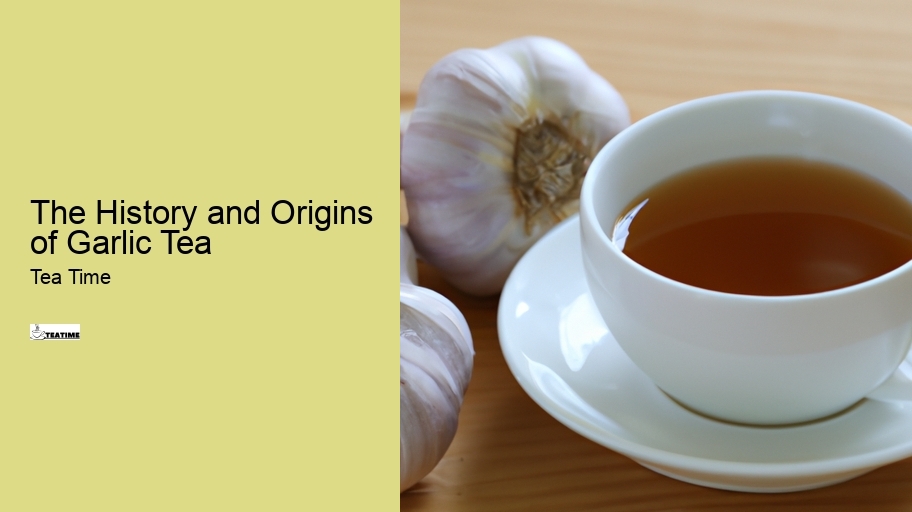

Garlic tea might have unexpected benefits for sleep quality due to its relaxing properties. While garlic is known for its robust flavor and health benefits, it also contains compounds that can help soothe the nervous system. This can be particularly beneficial for those who struggle with sleep disturbances.
The key, however, is moderation and timing.
Incorporating garlic tea into your evening routine can be a comforting ritual. Its warmth and aroma can provide a sense of relaxation, setting the stage for a restful night. Pairing it with calming activities like reading or meditation can further enhance its sleep-promoting benefits.
Adopting eco-friendly practices in preparing and enjoying garlic tea can contribute significantly to environmental sustainability. Opting for organic garlic grown without harmful pesticides and fertilizers is a step towards supporting sustainable agriculture. This not only ensures a purer product but also minimizes environmental impact.
When brewing garlic tea, consider using loose garlic cloves instead of pre-packaged tea bags, which often contain non-biodegradable materials. Using a reusable tea infuser or strainer reduces waste and the environmental footprint of your tea-drinking habit.
Finally, sourcing garlic locally when possible reduces transportation emissions associated with long-distance food transport. Supporting local farmers not only contributes to reduced carbon footprint but also promotes community-based sustainable practices.
Garlic tea's potential impact on cholesterol levels is another of its noteworthy health benefits. Regular consumption of garlic tea can contribute to maintaining healthy cholesterol levels, a key factor in cardiovascular health. The active compounds in garlic, particularly allicin, are believed to influence cholesterol metabolism.
While garlic tea can be a beneficial addition to a heart-healthy diet, it's important to note that it should complement a balanced nutritional plan and lifestyle. It's not a substitute for prescribed cholesterol-lowering medications but can be part of an overall strategy to manage cholesterol levels.
As always, consult with a healthcare professional before making significant changes to your diet, especially if you have existing health conditions or are on medication.
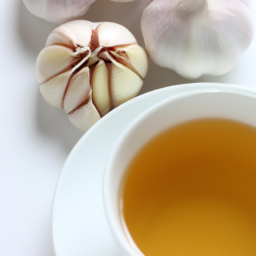
Enhancing garlic tea with other herbs can elevate both its flavor and health benefits. Popular combinations include adding ginger, known for its digestive and anti-inflammatory properties, or turmeric, which offers additional antioxidant benefits. These herbs complement garlic’s robust flavor and amplify its health effects.
For a calming blend, consider pairing garlic with chamomile or lavender. These herbs are known for their relaxing properties and can make garlic tea a soothing evening drink. Diabetes Management Alternatively, adding a hint of mint or lemon balm can create a refreshing and invigorating tea, perfect for morning consumption.
Experimenting with different herbal combinations allows for personalization of garlic tea to suit individual health needs and taste preferences. Each herb brings its unique benefits, making garlic tea a versatile and customizable beverage for various wellness goals.
Garlic tea's presence in various cultures underscores its global appeal and versatility. Vitamin C In some Asian cultures, garlic tea is a traditional remedy for colds and respiratory issues, prized for its warming and healing properties. In other regions, it's consumed for its digestive benefits or as a general health tonic.
The preparation methods and accompanying rituals of garlic tea vary widely. In some cultures, garlic tea is brewed simply with water, while others add ingredients like honey, lemon, or herbs to enhance its flavor and medicinal properties. These variations reflect the unique culinary and medicinal traditions of each culture.
Exploring the different ways garlic tea is enjoyed around the world can be a fascinating journey. It highlights the universal appeal of natural remedies and the adaptability of garlic tea to different tastes and health practices.
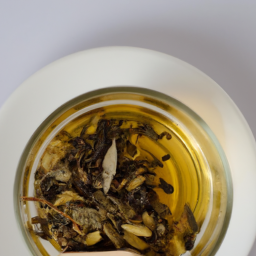
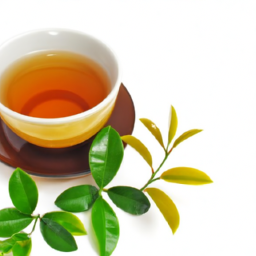
Garlic tea is a traditional remedy for respiratory health, known for its natural antibacterial and antiviral properties. Consuming garlic tea can help alleviate symptoms of respiratory ailments like colds, coughs, and sore throats. The active compounds in garlic, such as allicin, contribute to its effectiveness in reducing inflammation and clearing congestion.
The warm steam from garlic tea can also provide symptomatic relief for nasal congestion. Inhaling the steam helps to open up nasal passages, making it easier to breathe. This makes garlic tea a comforting choice during cold and flu season.
Regular consumption of garlic tea, particularly during times of heightened respiratory infections, can bolster the respiratory system. It's a natural, soothing way to support lung health and maintain respiratory wellness.
While garlic tea's pungent flavor is distinctive, it can be softened and sweetened naturally to suit different palates. Adding honey is a popular choice, not only for its sweetness but also for its throat-soothing properties. Honey complements garlic’s flavor and enhances the tea's overall health benefits.
Another natural sweetener is stevia, a plant-based sweetener that provides sweetness without the calories. This can be a good option for those watching their sugar intake.
These natural sweeteners do not just enhance the flavor; they also contribute to the healthful properties of garlic tea. Choosing natural over processed sweeteners ensures that the tea remains a healthy beverage choice.
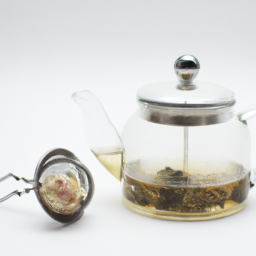
Yes, garlic tea can be beneficial in relieving symptoms of colds and flu. Garlic has natural antibacterial and antiviral properties that may help in fighting infections. Drinking warm garlic tea can also provide soothing relief for sore throats and congestion.
It's generally recommended to drink garlic tea earlier in the day. For some, garlic tea can be stimulating and might interfere with sleep if consumed right before bed. However, individual reactions can vary, so you may need to experiment to see how it affects your sleep.
There is no standard recommendation, but moderate consumption, such as a cup a day, is generally considered safe and beneficial. It's important to listen to your body and adjust the frequency based on how you feel.
Garlic tea is generally well-tolerated, but in some cases, it can cause side effects such as bad breath, body odor, an upset stomach, or heartburn, especially when consumed in large quantities. It's advised to start with a small amount to see how your body reacts.
While garlic tea is safe for most people, it may not be suitable for everyone. Individuals with garlic allergies, those on blood-thinning medications, or pregnant and breastfeeding women should consult a healthcare professional before consuming garlic tea. Excessive consumption can also lead to digestive discomfort in some people.